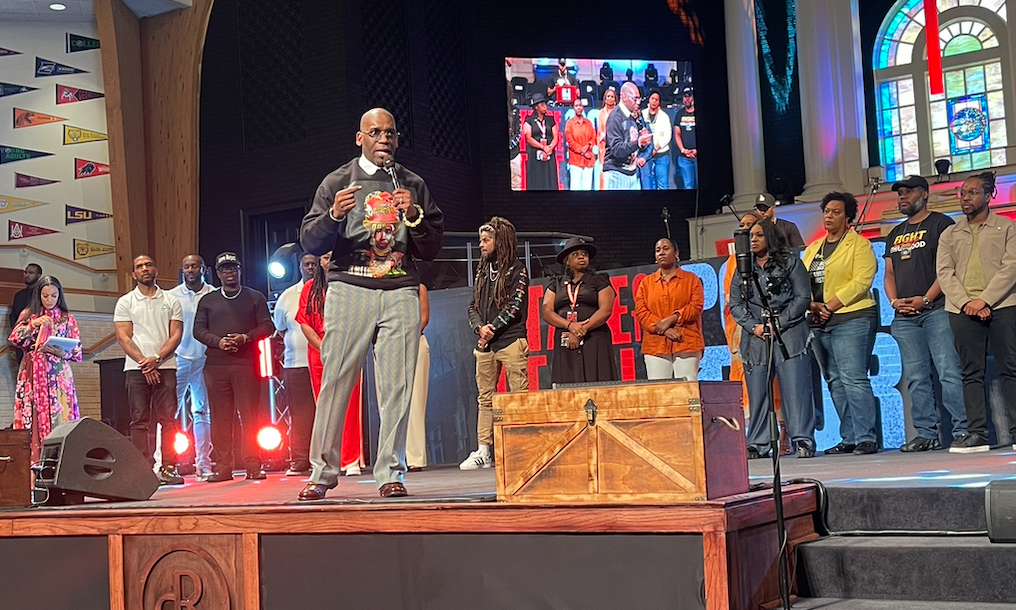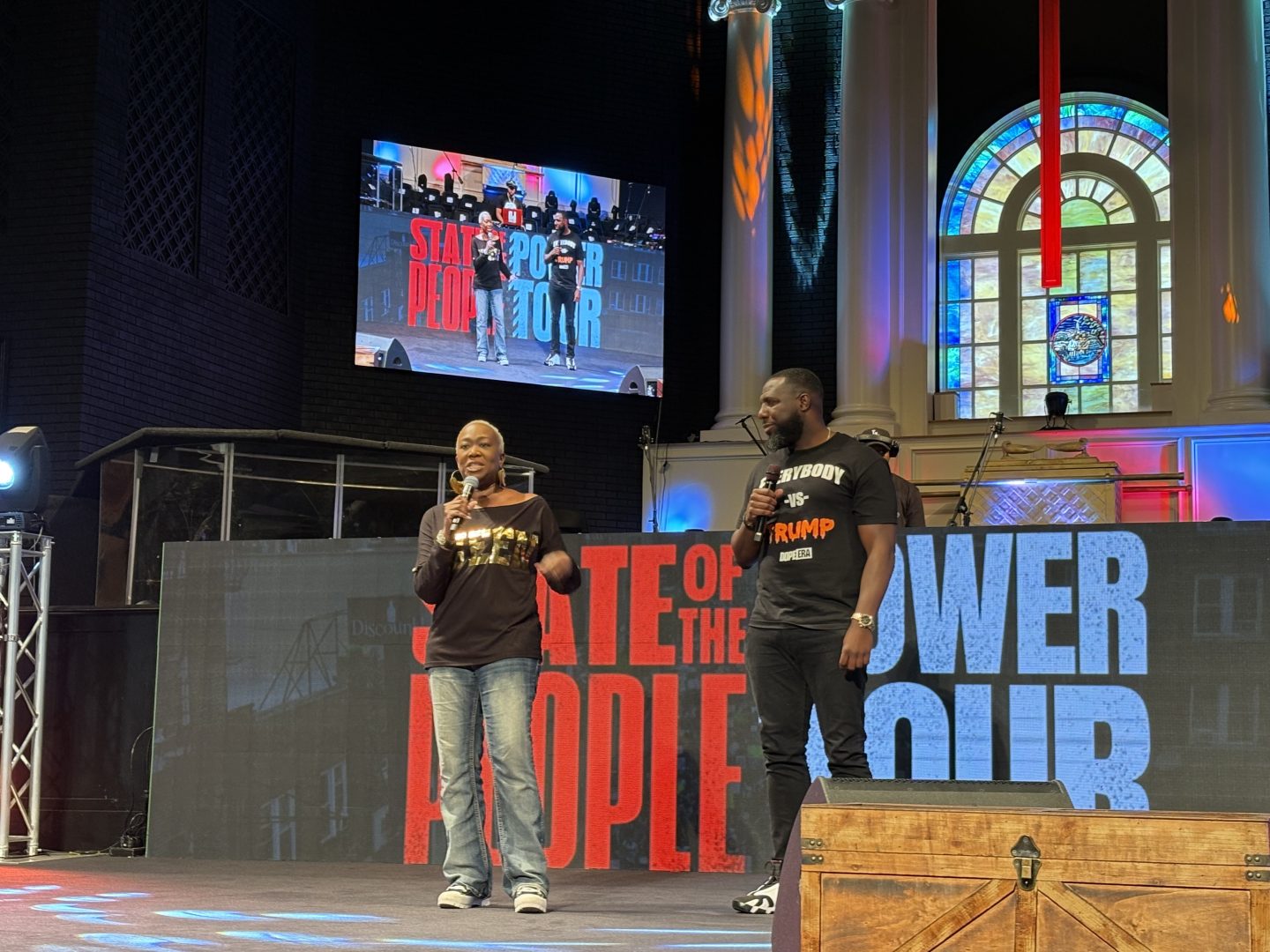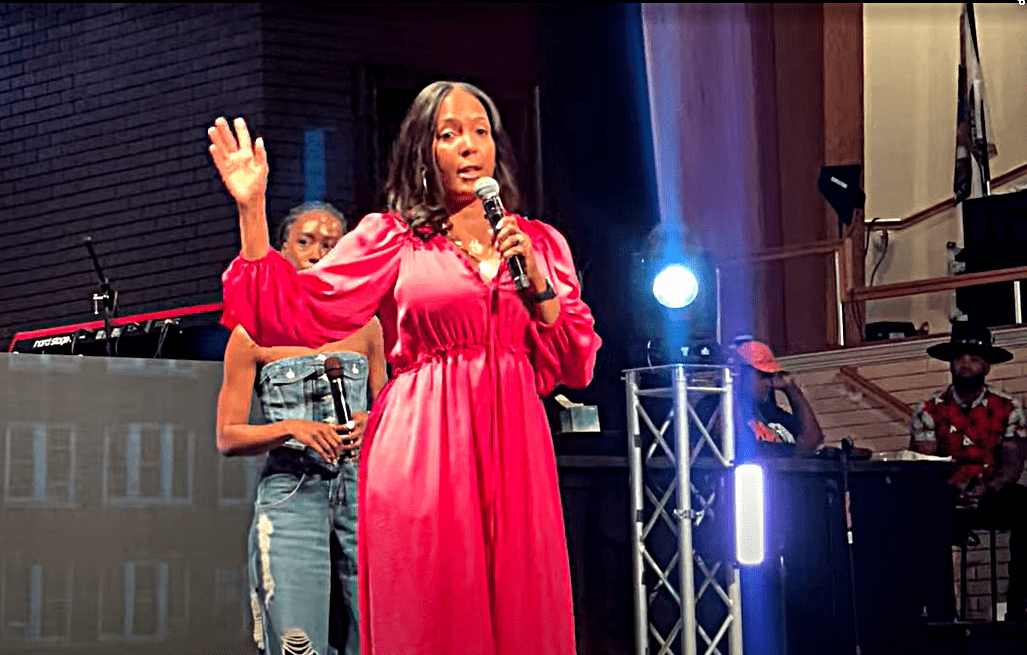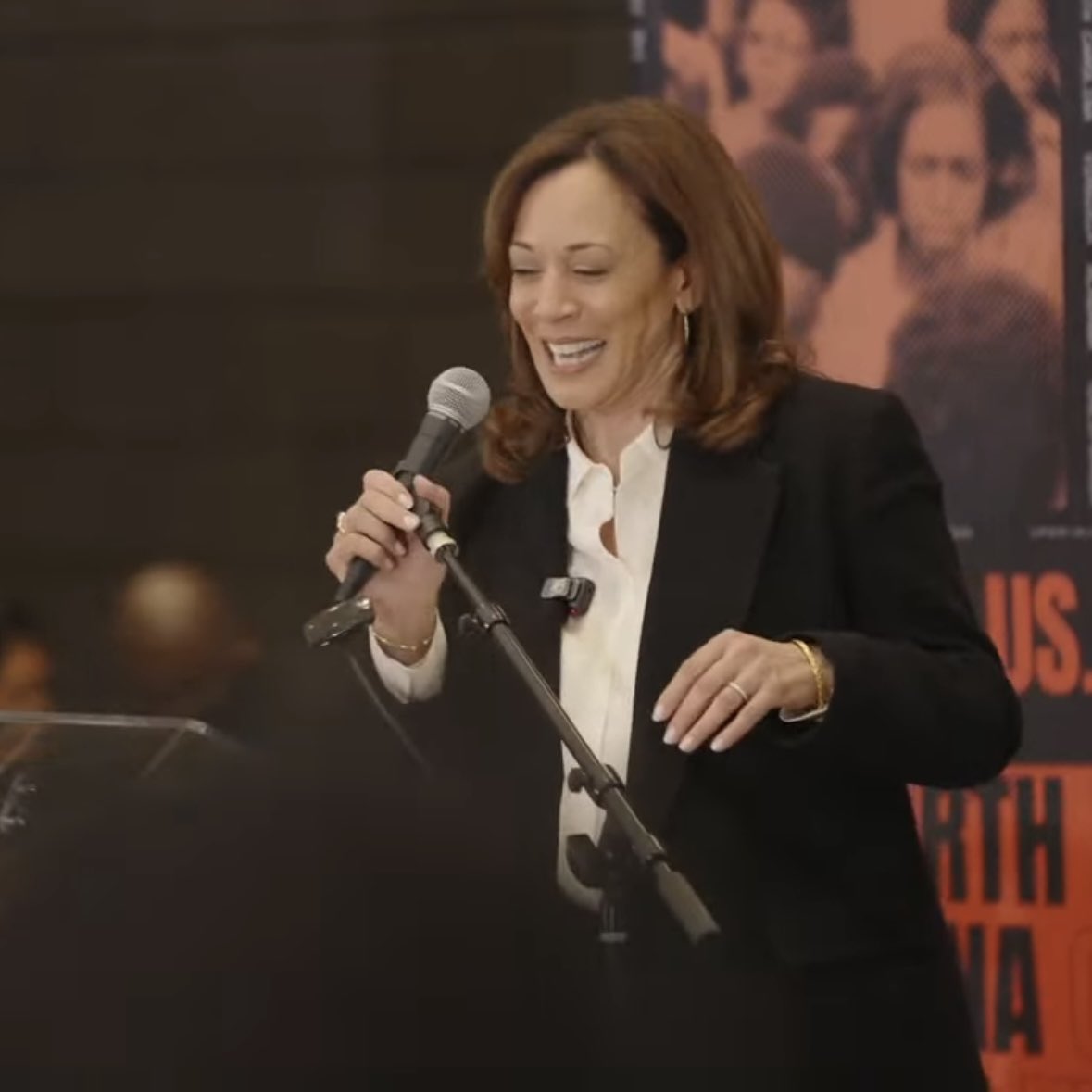
How the State of the People Power Tour Is Building Power and Amplifying Black Voices - Non Profit News | Nonprofit Quarterly
During the State of the People Power Tour, local communities—many of them in the South—have been organizing around the issues most impacting them.
 nonprofitquarterly.org
nonprofitquarterly.org
How the State of the People Power Tour Is Building Power and Amplifying Black Voices
Rebekah Barber
May 19, 2025

On March 5, as President Donald Trump delivered his State of the Union address, Black leaders and advocates from across the country were engaging in a 24-hour livestream called the State of the People, an inaugural effort to counter misinformation and center those who would be most impacted by the administration’s harmful policies.
During the livestreamed event, thousands of viewers tuned in to hear leaders like former Counsel to the Congressional Black Caucus Angela Rye, political commentator Joy Reid, activist and author Tamika Mallory, and civil rights lawyer Benjamin Crump, among others, talk about the issues impacting Black people. This was just the beginning of the conversation.
“This tour is a grassroots movement that is seeking to amplify Black voices and create an environment to demand systemic change.”
Since April 26, Rye, Mallory, and others have been leading a 10-city State of the People Power Tour. They have been conducting town halls, field hearings with local elected officials, teach-ins, community impact fairs, and rallies. Their shared vision is to reimagine what’s possible for Black communities across the United States.
Alphonso David is the president and CEO of the Global Black Economic Forum and was involved in some of the tour’s initial conversations. “This tour is a grassroots movement that is seeking to amplify Black voices and create an environment to demand systemic change,” he said in an interview with NPQ.
Focusing on the South
David, who is based in New York, notes that it was critical that the tour be largely focused in the South, where the majority of Black people live. The tour started in Atlanta in late April and will end in Los Angeles in early June, with more tour stops forthcoming.
Seven of the tour’s 10 stops are in states that are disproportionately impacted by regressive policies, such as voter suppression laws and the refusal of state governments to expand Medicaid, even though more than half of Black and Latine children rely on Medicaid or the Children’s Health Insurance Program (CHIP) for their healthcare coverage.
As David notes, many of the agencies that have come under attack by the Trump administration and have had to undergo massive layoffs are those that employ a significant number of Black people. This includes the Department of Veterans Affairs (VA) and the Department of Housing and Urban Development (HUD).
“It has always been about…understanding the experiences that people are having in their lives…and the ways that federal policy does and does not do, can either make things better or worse.”
David says that one of the biggest things he is seeing on the ground is a thirst for more information. Which is why a major goal of the tour is to combat misinformation and disinformation by providing communities with trusted tools and resources. To that end, the group has released The State of the People Black Papers, a series of documents outlining policies that local elected officials can adopt. The policies include addressing economic injustice and building an economy that works for Black people; confronting the Black health equity crisis; uplifting the role of Historically Black Colleges and Universities, as well as community colleges; and highlighting past Black military service in the fight for democracy.
“It has always been about demand at the local level—understanding the experiences that people are having in their lives, which is local, and the ways that federal policy does and does not do, can either make things better or worse,” said Maya Wiley, president and CEO of The Leadership Conference on Civil and Human Rights, in an interview with NPQ.
Protecting Local Communities Through Advocacy
Wiley, who joined the tour in Birmingham, AL, noted that monumental legislation like the Civil Rights Act of 1964 and the Voting Rights Act of 1965 largely came to be because of local organizing. She believes there is a similar opportunity today, and that many people are excited to be a part of local movements that center on building power.
As Wiley notes, the Birmingham stop of the tour took place just after the 60th anniversary of the march from Selma to Montgomery, and was an extension of organizing efforts that had already been taking place. Of note in Birmingham, Wiley said, was the number of engaged young people present, including from local high schools.
She also emphasized that communities are already being impacted by cuts at the federal level, and that making that connection clear is important. She reflected that one local leader in Birmingham was rightfully upset about the constant sewage backups in her community, which were causing flooding in people’s homes.
Wiley stressed that it’s critical to address this because it’s a health hazard, and it is frustrating that Black communities are not getting the resources to address these types of issues, especially after Black residents won a historic civil rights settlement agreement with the Department of Justice in 2023 to rectify the issue.
Wiley also pointed out that Trump recently canceled that settlement agreement, calling it “illegal DEI.”
“If the federal government is turning off the flow of dollars…then we’ve got a big problem and it’s harder to solve.”
“It’s not that it isn’t a demand you should make of state and local leaders,” Wiley said. “But if the federal government is turning off the flow of dollars that helps fund that, then we’ve got a big problem and it’s harder to solve, especially when states are now, because of this administration, being asked to take on the burden.”
It is critical for local leaders to also be in communication with national groups because they all face increased threats and can share information and resources, Wiley pointed out. National organizations like the Vera Institute of Justice have been targeted and have lost federal funding in recent months, just as local groups are also being targeted.
“We’re already hearing in some communities, investigations being opened against nonprofits for things like doing a Know Your Rights training for immigrants,” Wiley said.
Such investigations, Wiley noted, are a warning sign and a reminder to protect local organizations.
“We need to protect our local community organizations, both from losing federal dollars that are enabling them to provide in their communities—advocacy, organizing, and services—but also that’s a place where our national organizations need to be in partnership so we know and understand what’s happening and how we can help support and advocate for them,” Wiley said.









